A safe return to in-person classes in rural Ecuador
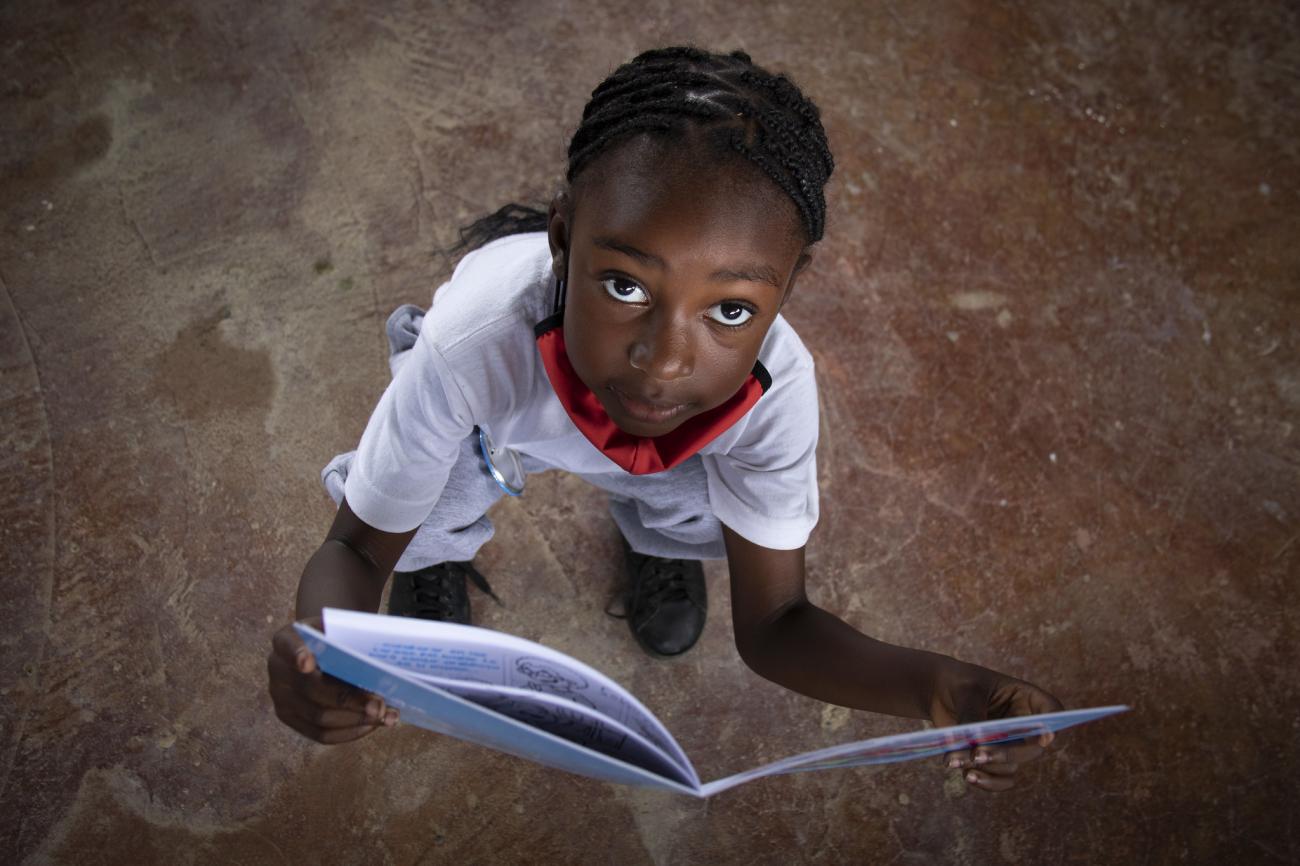
“The pen is the tongue of the soul; as are the thoughts engendered there, so will be the things written.”
With these words, from the novel Don Quixote by the Spanish writer Miguel De Cervantes, we invite you to join us in the commemoration of Spanish Language Day.
Reading and writing helps us leap from knowing to understanding. In fact, literacy is prioritized as one of the fundamentals of education recovery from the COVID-19 pandemic.
In the following lines, you will find the testimony of a teacher and a group of students from Ecuador, who are back in their classroom, a safe space where they collaboratively boost their literacy skills:
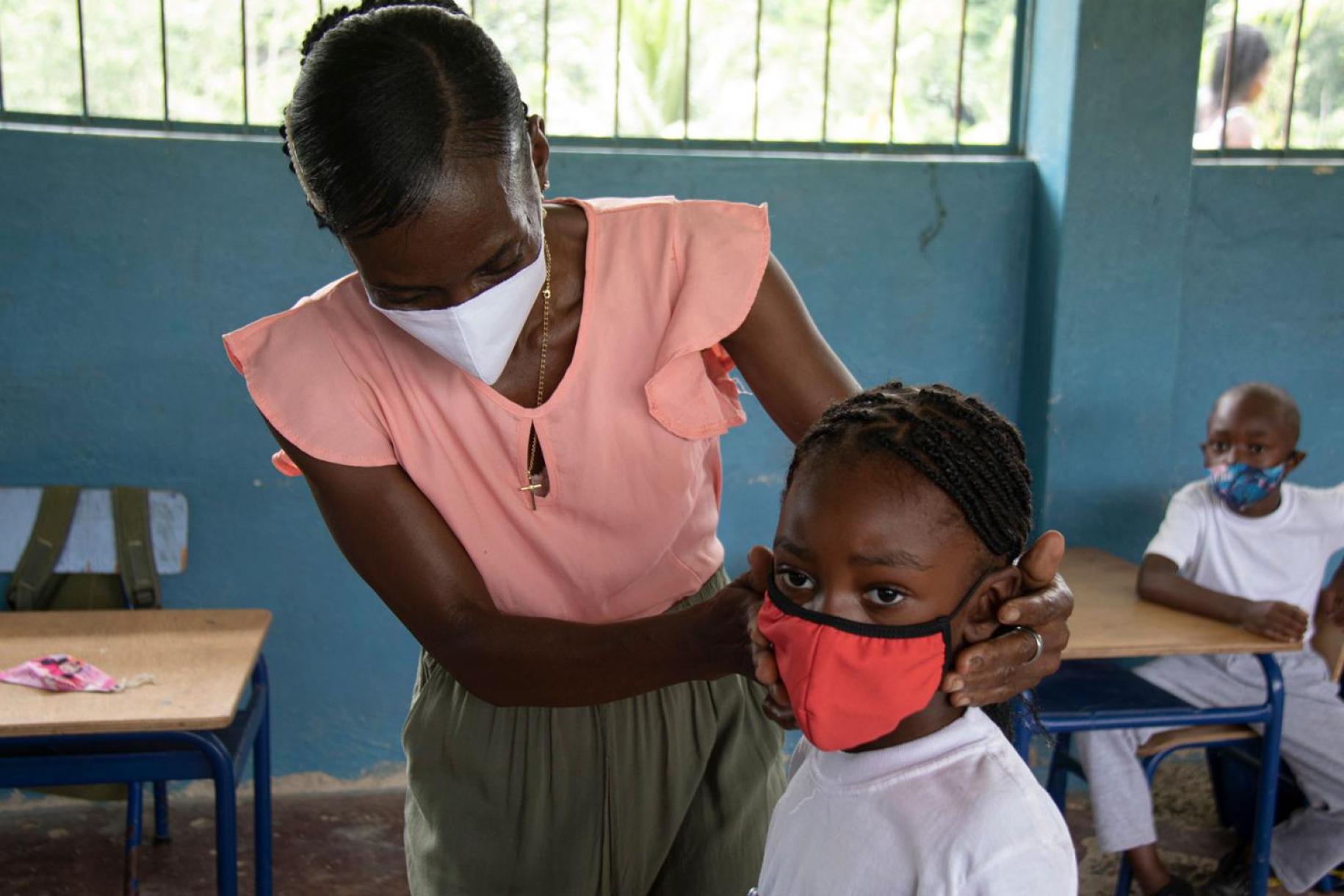
“The pandemic has not affected us much in terms of infection because we are not as exposed here in the countryside as in the cities. However, as a teacher, yes, it did affect me a lot because I stopped seeing my students at school”, explains Irma Quiñonez. She is a teacher and principal of the Provincia del Cañar school in Ecuador.
Since July 2021, students from the 63 native Chachi, Épera and Afro-descendant communities living in the Eloy Alfaro canton, a small town in the province of Esmeraldas, have been gradually returning to their classrooms.
Irma was eager to go back to face-to-face teaching, and her students shared her excitement:
“I am happy to be back at school because here I can play with my classmates and be with my teacher Irma. At home, I was already bored of just watching TV. At school, I play soccer and learn more”, said Junior Javier, 12.
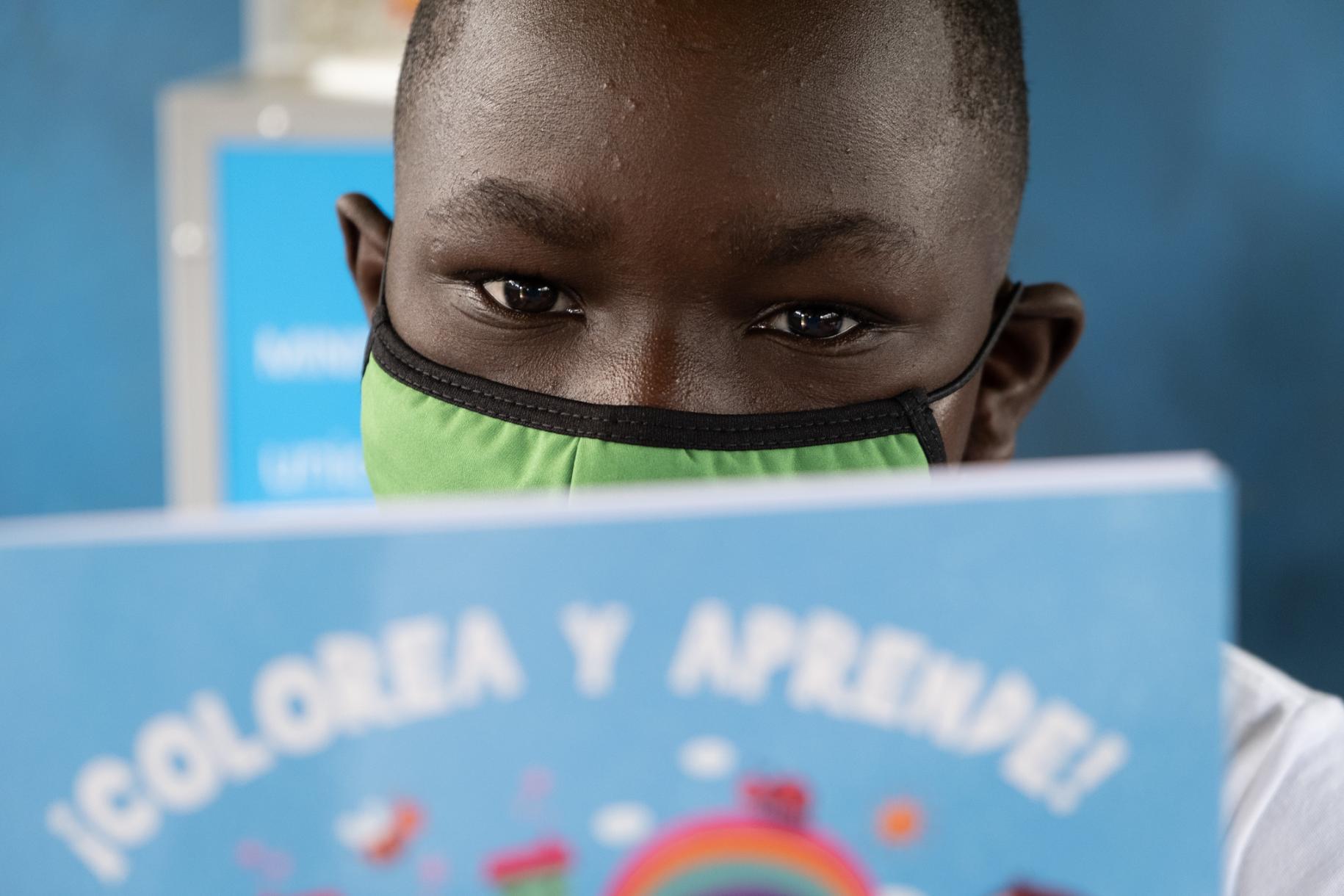
Merlía, 8, mentioned that she was tired of washing dishes and doing household chores at home. “At school, I see the teacher, I write, I paint and play with my friends”, she added.
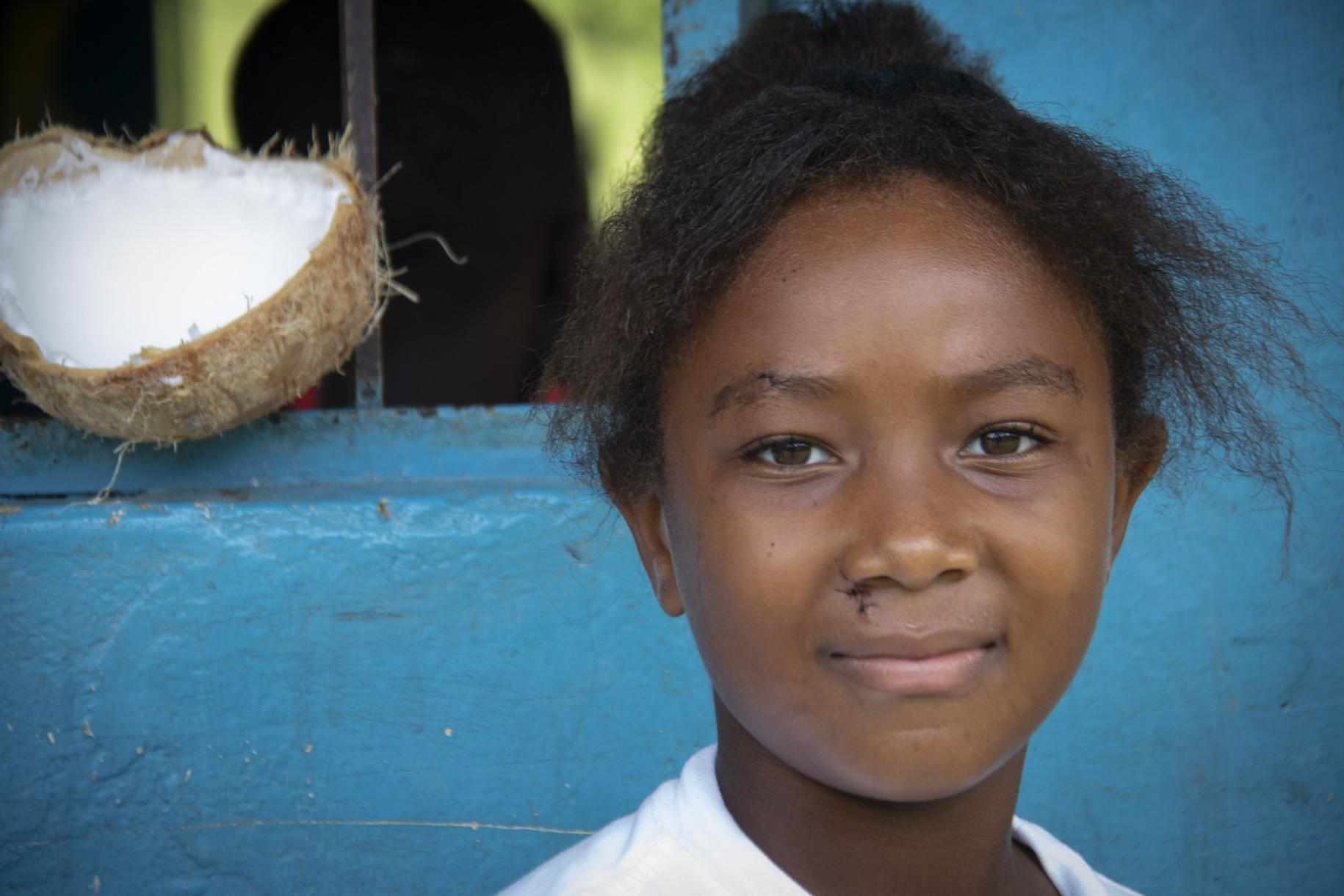
Irma emphasized how the water, sanitation and hygiene kits have helped her students in their safe return to the classroom.
“They feel good; they feel clean. With access to clean water and soap, they can better protect themselves from COVID-19 infection”, she stressed.
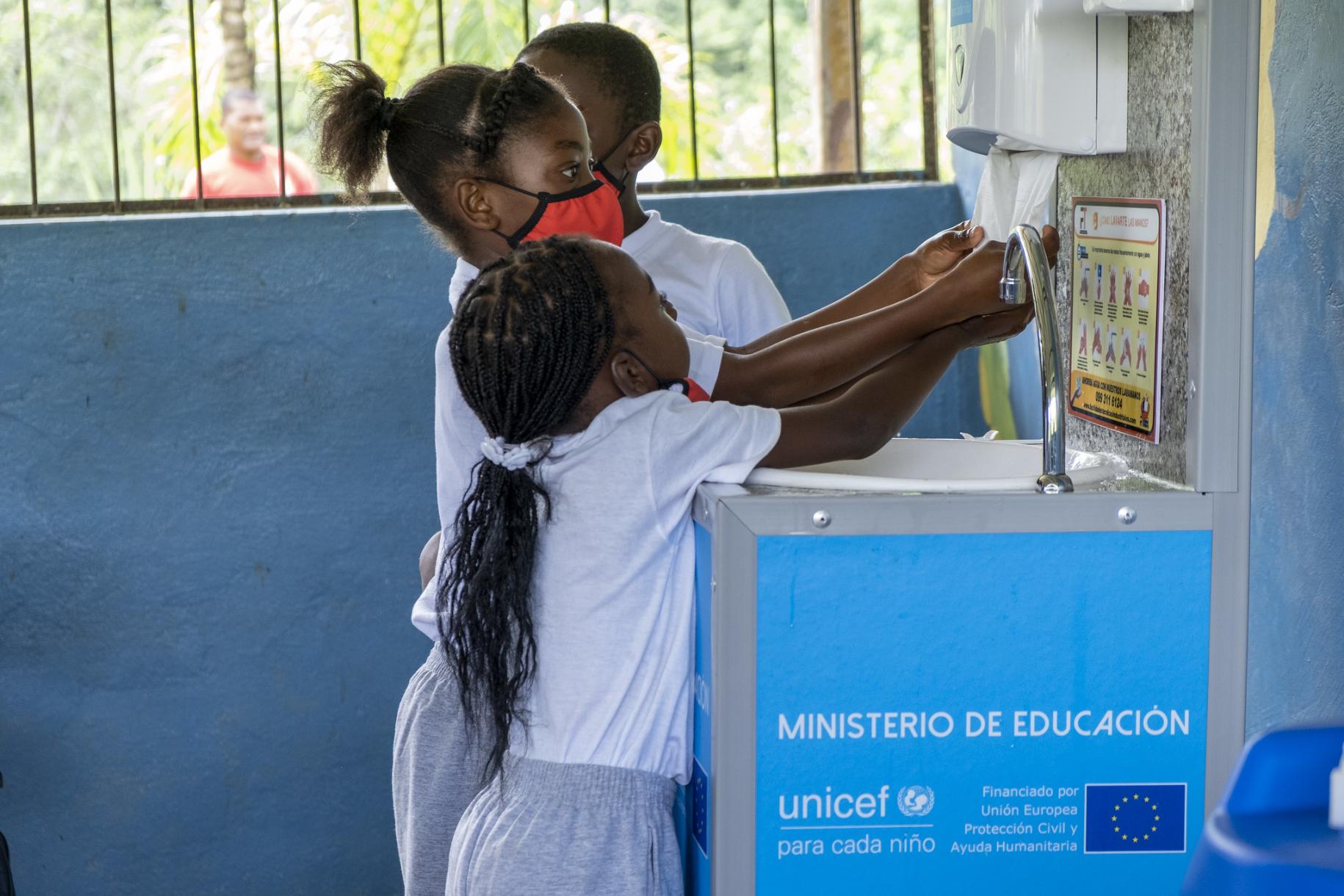
A total of 94 communities in Esmeraldas have received refillable hand-washing basins, water jerry cans, water purification tablets and other supplies donated by UNICEF, with the support of the European Civil Protection and Humanitarian Aid Operations (ECHO).
As of September 2021, over 12,000 children in 118 rural schools in Ecuador have been able to resume their classes thanks to these donations, which were part of the UN’s support to the Ministry of Education of Ecuador for reopening schools in the context of the COVID-19 emergency.
The COVID-19 pandemic has jeopardized the present and future of children and youth worldwide. In Ecuador, before the pandemic, approximately 268,000 children were already out of the education system and another 187,277 were behind in school. But after the onset of the health emergency, it is estimated that at least another 90,000 students withdrew from the education system.
Together with UNESCO, UNICEF and other partners, the Ministry of Education in Ecuador offered education options through radio and TV, making it possible to reach 93% of the country’s households. A virtual platform with over 2,800 educational resources and 1.9 million active users was also set in place by the Government of Ecuador.
Since last August, the UN family—with UNESCO as the coordinator and UNHCR and UNICEF as implementing partners—have been working with the Government of Ecuador, the private sector, civil society organizations and the education community to start the territorial implementation of a multi-year resilience program funded by Education Cannot Wait (ECW)—the first UN global fund for education in emergencies and prolonged crises.
The original version of this story was written by Ana María Castro, UNICEF Ecuador. This edited version was produced with the editorial support of the Development Coordination Office (DCO).
For more information on the UN’s work in Ecuador, please visit Ecuador.un.org.













